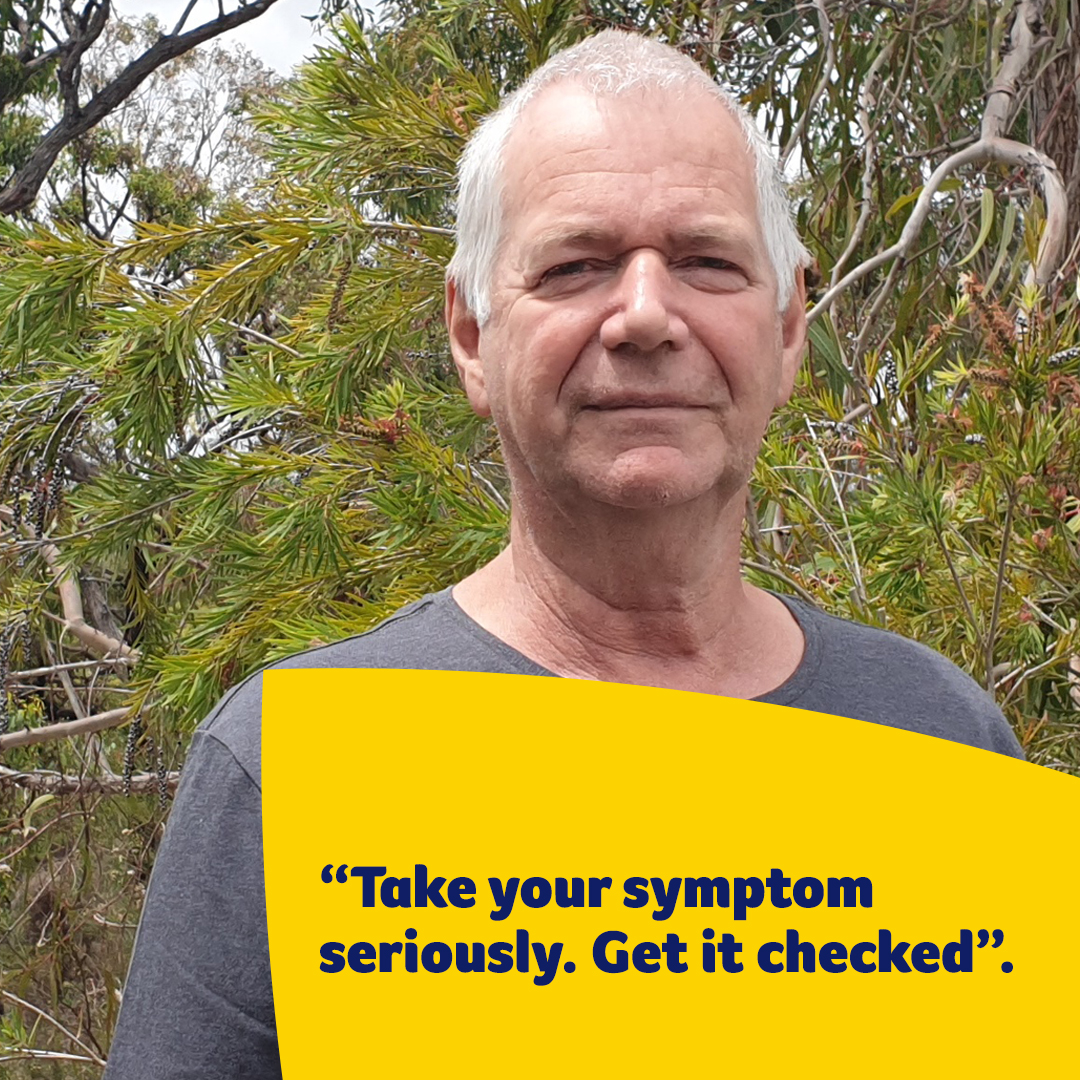Prostate and lung cancer champion
Don’t wait until something else happens and it metastasises. Take symptoms seriously.
Kevin’s story
In 2019 at age 70, former chef Kevin experienced an odd abdominal pain, near the bottom of his ribs, as he was getting out of bed. It happened again within a couple of weeks and he had felt unusual tightness in this area previously, so had always thought there may have been ‘something going on’. Kevin had also been feeling more tired than usual though had put that down to his age. Mostly out of curiosity, Kevin booked in to see his GP.
Kevin’s GP ordered an ultrasound and then a CAT scan of his abdomen. Some lesions were spotted at the top of the scan so another CAT scan was ordered for the area just above the first scan. Kevin’s GP then advised him that he had multiple cancers throughout his lungs and abdomen. This was a complete surprise to Kevin who had never smoked cigarettes.
Unfortunately, this wasn’t the first time Kevin had been diagnosed with cancer. Twenty years prior, after a routine digital rectal examination and prostate specific antigen (PSA) test (as was common practice at the time) Kevin was told he had prostate cancer, though there was no need to undergo any treatment.
Fast forward twenty years to 2019, Kevin is now undergoing hormone treatment every three months for the rest of his life. He will commence six rounds of chemotherapy every three weeks in Geraldton and then may be required to undergo radiation treatment, as well. He felt fortunate to be able to stay with his wife at Milroy Lodge while he underwent his treatment. Milroy Lodge is one of Cancer Council WA’s two ‘homes away from home’ for regional cancer patients.
Kevin has said his positive attitude has helped him carry on throughout his investigative and treatment journey.
Kevin’s advice
“Take symptoms seriously”.
“Get it checked”.
“Take their (GP) advice and get it sorted”.
“Don’t wait until something else happens and it metastasises”.
“It’s not worth taking the chance”.
Prostate specific antigen (PSA) test
The PSA test measures the levels of PSA found in the blood. Normally, PSA stays within the prostate. Blood levels of PSA increase if the prostate is damaged.
The current PSA test is not a suitable population screen test. Unfortunately, we don’t have reliable medical proof that routine population testing does more benefit (increased prostate cancer survival) than harm (treating people who don’t need treatment and side effects of treatments).
Early detection of symptoms can significantly improve prostate cancer treatment. Men considering being tested for prostate cancer should do so with information on both the benefits and harms of testing and treatment. We encourage men to speak to their doctor, or phone the Cancer Council WA cancer nurses on 13 11 20, so that they can make an informed choice about PSA testing.
Men experiencing possible prostate cancer symptoms should tell their doctor, clinic nurse or Aboriginal health worker without delay.
Information for smokers
If you’re thinking of quitting smoking visit the Make Smoking History website to find information about ways to quit, how to stay quit and real quitting stories from smokers.
Ready to quit now? Download the free My Quit Buddy app today! The app will help you through your cravings and inform you of all the health and financial benefits you’re receiving every day you stay quit. It also has a forum so you can chat to other people who are quitting and you can store photos and recordings of loved ones to motivate you along the way.

